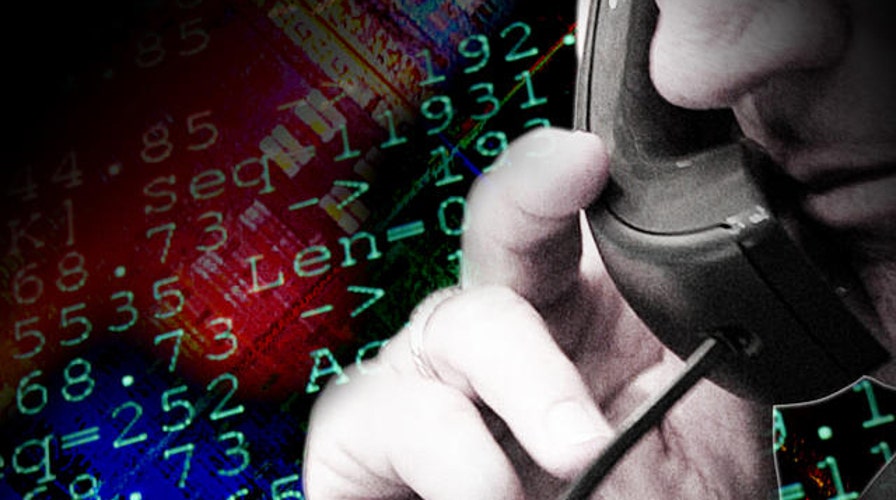Invasion of privacy in the age of Snowden
Eric Yaverbaum on how we are being monitored and what you need to be aware of
Civil liberties advocates challenged intelligence officials over claims about the limited scope of U.S. surveillance programs following a new report on a vast Internet data project -- as lawmakers moved anew to rein in the National Security Agency.
The Guardian on Wednesday, citing documents leaked by former NSA contractor Edward Snowden, described a program known as XKeyscore, saying it allows a range of analysts to monitor everything from emails to browsing history to online chats.
According to the piece, the XKeyscore program is the "widest-reaching" system the agency has and allows analysts without prior authorization to dig around the database by filling out an on-screen form giving a basic justification. The Guardian published a series of detailed slides on how the program operates.
The article was quickly challenged by the NSA, as well as lawmakers briefed on some of the details. In a statement forwarded to Fox News, the agency said "allegations of widespread, unchecked analyst access to NSA collection data are simply not true."
But others reacted to the report with alarm, noting that if true the details may contradict prior claims made by agency officials.
"The latest revelations make clear that the government's surveillance activities are far more extensive and intrusive than previously understood, and they underscore that the surveillance laws are in desperate need of reform," American Civil Liberties Union Deputy Legal Director Jameel Jaffer said in a statement. "These documents also call into question the truth of some of the representations that intelligence officials have made to the public and Congress over the last two months. Intelligence officials have said repeatedly that NSA analysts do not have the ability to sift indiscriminately through Americans' sensitive information, but this new report suggests they do."
Civil liberties advocates took to Twitter to trumpet the latest allegations against the NSA, as part of an intensifying campaign to convince Congress to rein in the agency. A recent bipartisan effort to do so -- backed by Rep. Justin Amash, R-Mich., and John Conyers, D-Mich. -- narrowly failed amid resistance from party leaders.
"All Members of Congress have a duty to notify their constituents that the gov is surveilling them," Jesselyn Radack, with the Government Accountability Project, tweeted.
Lawmakers on Thursday separately unveiled two bills that would reform the secretive court that approves surveillance requests. The bills would create an office to advocate before the court for privacy rights -- to ensure both sides of any such argument are heard -- and would change how judges are appointed.
The bills are sponsored by Sens. Richard Blumenthal, D-Conn.; Ron Wyden, D-Ore.; and Tom Udall, D-N.M.
The nation's top intelligence official has previously apologized for giving inaccurate testimony earlier this year on surveillance. Director of National Intelligence James Clapper, in a June 21 letter to Senate Intelligence Committee Chairwoman Dianne Feinstein, said his answer was "clearly erroneous" when he told Congress the NSA doesn't gather data on millions of Americans.
But as the intelligence community moves to declassify portions of its data collection programs -- thus freeing officials to speak more openly about them -- officials are continuing to defend the programs and challenge recent media reports.
In testimony before the Senate Judiciary Committee, U.S. officials on Wednesday again stressed that there are clear limits to analysts' ability to monitor phone and Internet data.
"We try to be very, very judicious in the use of this very narrowly focused authority," NSA Deputy Director John Inglis said, in reference to the collection of phone metadata.
"It's important to remember that all we're getting out of this is numbers," Robert Litt, general counsel for the Office of the Director of National Intelligence, said of the same program. "Nobody's name. Nobody's address. The content of no communications."
Litt stressed that the metadata collection -- which gathers information like the time and duration of calls -- is meant to "identify telephone numbers that warrant further inquiry."
That is presumably the general purpose of XKeyscore, which focuses instead on the Internet. The leaders of the House intelligence committee, following the publication of the Guardian article, claimed the report "provides a completely inaccurate picture of the program" by suggesting lower-level workers can scour the data at will.
"The program does not target American citizens. Further, the program referenced in the story is not used for indiscriminate monitoring of the Internet, as many falsely believe," said committee Chairman Rep. Mike Rogers, R-Mich., and Rep. C.A. Dutch Ruppersberger, D-Md., top Democrat on the panel. They said it is only used to track foreign intelligence, and that the story "ignores the legal constraints," training and oversight attached to the program.
According to the Guardian report, the Internet program covers "nearly everything a typical user does on the internet" including emails and websites visited. It also reportedly allows analysts to intercept Internet activity in "real time."
The Guardian report seems to make a distinction between what is technically possible under this program and what is legally allowed. It notes that U.S. law requires the NSA to get a warrant if the target is a U.S. individual -- but says the XKeyscore program provides "the technological capability, if not the legal authority" to go after Americans without a warrant as long as an analyst knows information like an email or IP address.
The NSA, in its statement, pushed back on these assertions.
"The implication that NSA's collection is arbitrary and unconstrained is false," the agency said. "NSA's activities are focused and specifically deployed against -- and only against -- legitimate foreign intelligence targets in response to requirements that our leaders need for information necessary to protect our nation and its interests."
The agency said those with access to the system are trained on their "ethical and legal obligations." The agency complained that the ongoing leaks continue to jeopardize security.
The statement said the programs as a whole have helped defend the nation, and that as of 2008, "there were over 300 terrorists captured using intelligence generated from XKEYSCORE."
Amid the intense debate over the latest NSA revelation, Snowden was granted asylum in Russia and on Thursday left the Moscow airport where he's been stuck for more than a month. His representatives said he entered Russian territory on a one-year temporary asylum status. The White House said it was "extremely disappointed" by the decision.





